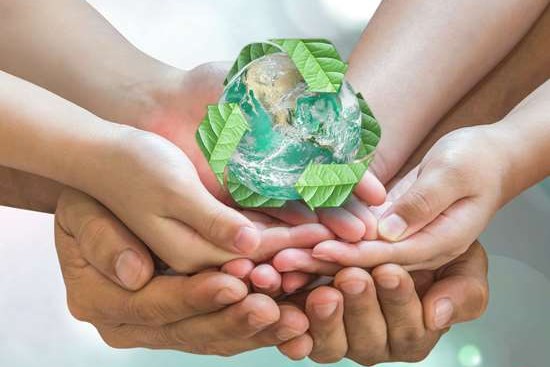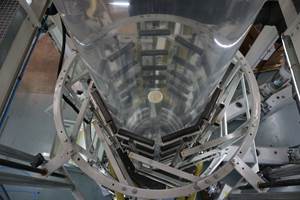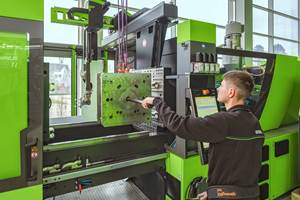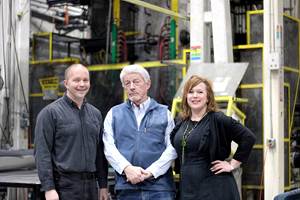Braskem Partners with University for Sustainable Plastic Production Using CO2 Capture and Use
Braskem project is being developed by researchers at the University of Illinois Chicago.
Braskem has entered into a partnership with researchers at the University of Illinois Chicago (UIC) to develop a new route for producing ethylene for PE production. This route will use capture and utilization technology to remove CO2 emissions of existing industrial processes that would otherwise be released into the atmosphere. The carbon capture and utilization technology under development at UIC in conjunction with Braskem holds excellent potential for many global industrial applications by connecting the capture and conversion of waste CO2 streams with the production of sustainable feedstock for making plastic.
The project is in the early stages of development, and Braskem will bring its expertise in commercial feedstock and polymer production to assist in the scale-up of the technology. Braskem will help validate the theoretical and experimental studies produced by the university. said Luiz Alberto Falcon, responsible for Braskem’s Innovation and Technology Recycling Platform.
Said said Luiz Alberto Falcon, responsible for Braskem’s Innovation and Technology Recycling Platform,“Reducing carbon emissions is a basic principle in combating climate change, a commitment that is part of our sustainable strategy. The goal of the partnership with the University of Illinois Chicago is to evaluate a potential pathway for capturing and converting CO2 emitted by our industrial operations and transforming that CO2 into a feedstock for our polymer manufacturing processes,”

According to a study from the International Energy Agency (IEA) the global chemical industry emits around 1.5 billion tons of CO2 every year from the use of energy combined with its industrial processes. Initial estimates of the technology’s potential indicate that if all this CO2 gas were converted and recovered, it would produce over 300 million tons of chemicals or thermoplastics resins, like those already made by Braskem. In addition, the use of renewable energy in the manufacturing process further reduces the carbon footprint and improves the technology’s attractiveness from key economic and sustainability standpoints.
Commmented professor Meenesh Singh, who is responsible for the project at the UIC College of Engineering’s Department of Chemical Engineering, “The goal of the partnership between UIC and Braskem is to establish a fully-integrated, sustainable, and energy-efficient system that can continuously capture CO2 from flue gas and convert it to ethylene for polyethylene production. Fossil fuels such as natural gas and coal are used extensively in industrial boilers to generate steam for the production of chemicals. The sustainable operation of boilers with enhanced energy efficiency and reduced carbon intensity requires the continuous capture of CO2 and its recycling into chemicals such as ethylene, which can have an immensely positive impact on the circular economy and provide more sustainable manufacturing processes. To develop a system with the required performance characteristics, our group at UIC will rely on our extensive and proven expertise in electrochemical CO2 reduction reaction and combine it with patent-pending technology to actively capture CO2 from the waste flue gasses.”
Sustainable innovation is embedded in the DNA of Braskem, according to the company, which believes in the transformational power of chemicals and plastics and in their responsible use to improve people’s lives. Today, the company has a team of over 300 professionals dedicated to sustainability, with 216 projects in the Innovation and Technology pipeline to meet the needs of different business areas and 903 patents filed in Brazil and abroad.
In November 2020, Braskem announced an expansion in its efforts to become a carbon neutral company by 2050. To achieve this target, the company’s strategy includes initiatives for carbon reduction, offsetting and capture, the expansion of the Company’s I’m green portfolio, which comprises products focusing on the circular economy, as well the diversion of 1.5 million tons of plastic waste away from incineration, landfill, or the environment over the next ten years.
Related Content
Boise State Team Wins Circular Plastics Challenge Focused On PET Recovery
NPE2024: The competition is a collaboration between Hillenbrand, Net Impact and Coca Cola.
Read MoreTAPPI to Provide Film Education Program at PTXPO 2023
Second-ever PTXPO will feature a robust education program on flexible film, with more technical programming in the works.
Read MoreMold-Change Time Targeted with Training, Technology
Engel is offering technology and training to molders to help them optimize their mold-changing process.
Read MoreBlow Molder Confer Plastics Celebrates Golden Anniversary & the ‘American Dream’
This family-run firm fills a specialized niche with a culture of innovation and environmental stewardship that realizes the dreams of its founders, its employees and its customers.
Read MoreRead Next
People 4.0 – How to Get Buy-In from Your Staff for Industry 4.0 Systems
Implementing a production monitoring system as the foundation of a ‘smart factory’ is about integrating people with new technology as much as it is about integrating machines and computers. Here are tips from a company that has gone through the process.
Read MoreSee Recyclers Close the Loop on Trade Show Production Scrap at NPE2024
A collaboration between show organizer PLASTICS, recycler CPR and size reduction experts WEIMA and Conair recovered and recycled all production scrap at NPE2024.
Read MoreFor PLASTICS' CEO Seaholm, NPE to Shine Light on Sustainability Successes
With advocacy, communication and sustainability as three main pillars, Seaholm leads a trade association to NPE that ‘is more active today than we have ever been.’
Read More















